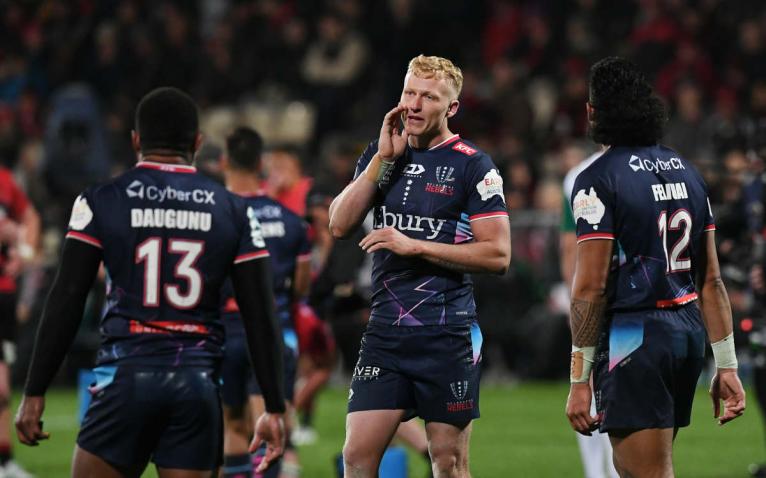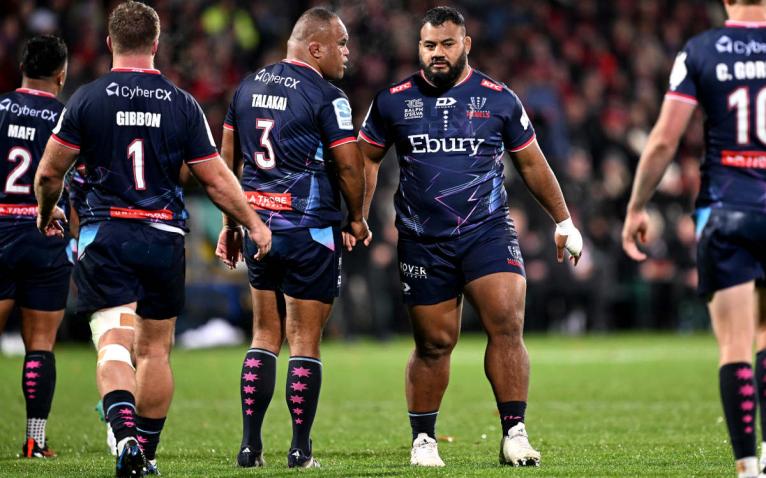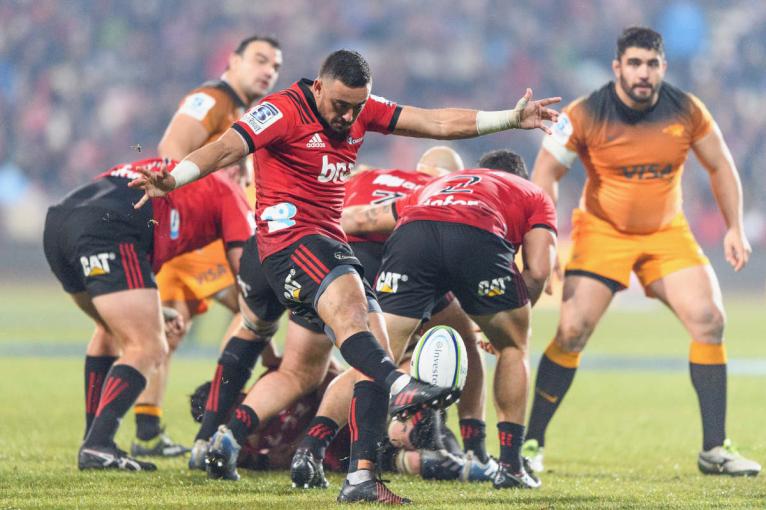A major decision is coming, somewhere in the next few weeks and probably months, whereby the fate of the Melbourne Rebels will be known as far as the 2025 Super Rugby Pacific season goes.
It will be a decision based on any number of legal and stakeholder recommendations, competition needs, what Rugby Australia can afford, and what the broadcast partners on either side of the Tasman Sea require contractually.
For many, the working assumption is and has been that the Rebels won’t feature in the 2025 draw. On more than a few radio discussions I’ve been a part of this season, and on both sides of the ditch, the question along the lines of ‘there’s no way the Rebels play next year, is there?’ has been asked.
And as it happens, I think there’s a very real scenario where the Rebels play on next year, but I’ll come back to that.
From a legal standpoint, administrator Stephen Longley recommended in his report last week that creditors accept a proposed deed of company arrangement (DOCA) from Rebels directors backed by a consortium of high net worth people, led by former Qantas chair Leigh Clifford.

The proposed deal would guarantee employees 100 per cent of their entitlements, but leave unsecured creditors with between 15 and 30 cents to the dollar. The report suggested that moves to liquidate, rather than accept the DOCA, would likely result in creditors receiving only single-figure cents in the dollar at best.
“I am of the view that the likely return to creditors under the proposed Deed will provide a materially better outcome for creditors than a winding up,” Longley stated in this report.
The deal will be put to creditors at a meeting this Friday, May 3.
The creditors, which include RA, the Australian Tax Office, and the Melbourne and Olympic Parks Trust which runs the Rebels’ home ground, AAMI Park, could of course reject the deal as proposed at that meeting and instead choose to liquidate and walk away.
RA now find itself having to fund a club in order to meet contractual obligations with broadcasters – Stan Sport and the Nine Network in Australia, and Sky Sports in New Zealand.
That could also open the door for further legal challenges from the Rebels directors, which could in turn prove uncomfortable for RA, who find themselves with their own financial concerns.
In addition, RA could find themselves owing the Victorian Government money under terms dating back to the 2017 acquisition of the Rebels from businessman Andrew Cox, and which guaranteed the Rebels’ participation through to 2025. The money would essentially represent a penalty for ending that arrangement early and is understood to be in the millions.
But as the holders of the Rebels’ licence to participate in Super Rugby Pacific, which was handed over when the Rebels were placed into voluntary administration in January, RA also now find itself having to fund a club in order to meet contractual obligations with broadcasters – Stan Sport and the Nine Network in Australia, and Sky Sports in New Zealand.

The current broadcast deal was put together by RA and New Zealand Rugby as they emerged from the COVID pandemic, paving the way for Super Rugby Pacific to move forward after South Africa elected to send its former Super Rugby teams to what was the Pro14 competition, now the United Rugby Championship.
That deal runs out at the end of the 2025 season and requires 12 teams playing six games each weekend (outside of bye rounds). The five Australian teams and five New Zealand teams were joined by the Fijian Drua and Moana Pasifika to confirm the competition for the 2022 season.
Winding the Rebels up after this season would either require the inclusion of a new twelfth team for 2025, or potentially, some form of compensation to the broadcasters for the lost content under the terms of the broadcast deal for its final year.
Given that negotiations for a new deal would be expected to start in the coming months, it would make for interesting discussions for RA and NZR, to be asking for an increase in broadcast revenue at the same time as compensation on the current deal might be due.
Returns of a Japanese team or even Argentinean side, the Jaguares, were said to be on the cards, as were the ideas of standing up brand new teams in Hawaii or even Los Angeles – crazy ideas that seemingly forgot the time zone issues often cited as a turn-off for viewers.
At the time the Rebels were placed into voluntary administration, and the assumptions of their inevitable demise began, all kinds of speculation about a twelfth team to meet the broadcast obligations for 2025 was reported.
Returns of a Japanese team or even Argentinean side, the Jaguares, were said to be on the cards, as were the ideas of standing up brand new teams in Hawaii or even Los Angeles – crazy ideas that seemingly forgot the time zone issues often cited as a turn-off for viewers when the competition contained teams from South Africa.
Those ideas will quite likely return again when attention turns to what sort of format and how many teams will be required for Super Rugby Pacific from 2026, and the broadcasters will almost certainly have a big say in that.

But the competition will still be played in 2025, and this is where it’s my belief that keeping the Rebels afloat from at least one more year might be the better percentage play.
For one thing, putting together even a streamlined budget to run the Rebels for one more season and keeping Melbourne in the fixture is going to be a hell of a lot cheaper than making the eleven other teams travel to Tokyo, Buenos Aires, Honolulu, or Los Angeles.
The additional travel, accommodation, and logistics costs in adding another long-haul flight and days-long stay in new countries onto the teams and the competition would be significant; maybe even beyond the additional commercial needs that would be required to fund such a move.
Keeping the existing twelve teams then also keeps the competition in Australian and New Zealand time zones, ensuring that viewing numbers would at least remain at current levels, rather than suffer the inevitable dip that comes with games played in zones upwards of 20 hours behind.
The Melbourne Rebels looked set for an inevitable demise earlier this year, but their survival for at least one more season – as ironic as this sounds – might just be the most cost effective move.
Maintaining twelve teams would also remove any compensation entitlements for broadcasters, an important element RA and NZR would certainly consider, given both are expected to post the standard RWC-year financial loss for 2023.
How Super Rugby Pacific looks from 2026 remains anyone’s guess right now, and something that will eventually be resolved over the course of negotiations in which current and prospective broadcast partners hold all the trumps. If it’s less teams, more teams, more countries allowing for more revenue, then it will be the broadcasters willing to pay for it that hold the stronger hands at the negotiating table.
But until then, there is the small matter of what 2025 what looks like. And what it looks like next season might be a case of what Rugby Australia can or can’t afford.
The Melbourne Rebels looked set for an inevitable demise earlier this year, but their survival for at least one more season – as ironic as this sounds – might just be the most cost effective move.



Comments
Join free and tell us what you really think!
Sign up for free